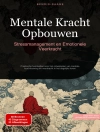Morton Deutsch is considered the founder of modern conflict resolution theory and practice. He has written and researched areas which pioneered current efforts in conflict resolution and diplomacy. This volume showcases six of Deutsch’s more notable and influential papers, and include complementary chapters written by other significant contributors working in these areas who can situate the original papers in the context of the existing state of scholarship.
Tabella dei contenuti
Introduction: Morton Deutsch and the Science of Peace.- A Career in Social Psychology.- Cooperation and Competition.- Intellectual Legacy: Cooperation and Competition.- Justice and Conflict.- Injustice and the Private Sphere.- Awakening a Sense of Injustice.- Awakening in a New Century.- A Framework for Thinking about Oppression.- Dismantling Oppression and Ushering in Social Change: A System Justification Perspective.- Interdependence and Psychological Orientation.- Coherence, Fit And Flow: A Framework For Envisioning The Fundamental Dynamics Of Social Relations.- Conclusion: Reflections on the State of the Field of Peace Psychology.
Circa l’autore
Morton Deutsch is one of the world’s most honored socialpsychologists. He is internationallyknown for his pioneering theoretical and research contributions relating tocooperation, conflict resolution, prejudice, social justice, and peace. He is considered to be a founder of thefields of conflict resolution studies and of cooperative learning. His work has not only has an impact in thesocial sciences, it has also been widely applied in education, industry, and in the resolution of conflict in many different settings frommarriage to international relations. Conflict, Interdependence, and Justice:The Intellectual Legacy of Morton Deutsch collects six of Deutsch’s mostinfluential papers, which together analyze essential issues in social relationsand identify conditions necessary for addressing them constructively. Complementarychapters by top contemporary scholars in the conflict resolution/socialjustice/social interdependence field imbue these works with particularrelevance for today. In addition, Deutsch’s introduction reflects on thewartime milieu and social reform era that set him on the path toward hispenetrating insights, and his concluding essay reveals implications of his worknot only for training, mentoring, and research, but also for promoting a largerculture of sustainable peace and justice. Included are the major essays:
“Cooperation and Competition.”
“Justice and Conflict.”
“Awakening the Sense of Injustice.”
“A Framework for Thinking about Oppression and Its Change.”
“Interdependence and Psychological Orientation.”
“Constructive Conflict Management for the World Today.”
Conflict, Interdependence, and Justice: The Intellectual Legacy of Morton Deutschis potent and timely reading for current—and future—researchers in peace studies, social and organizational psychology, political science, conflict resolutionandeducation.












